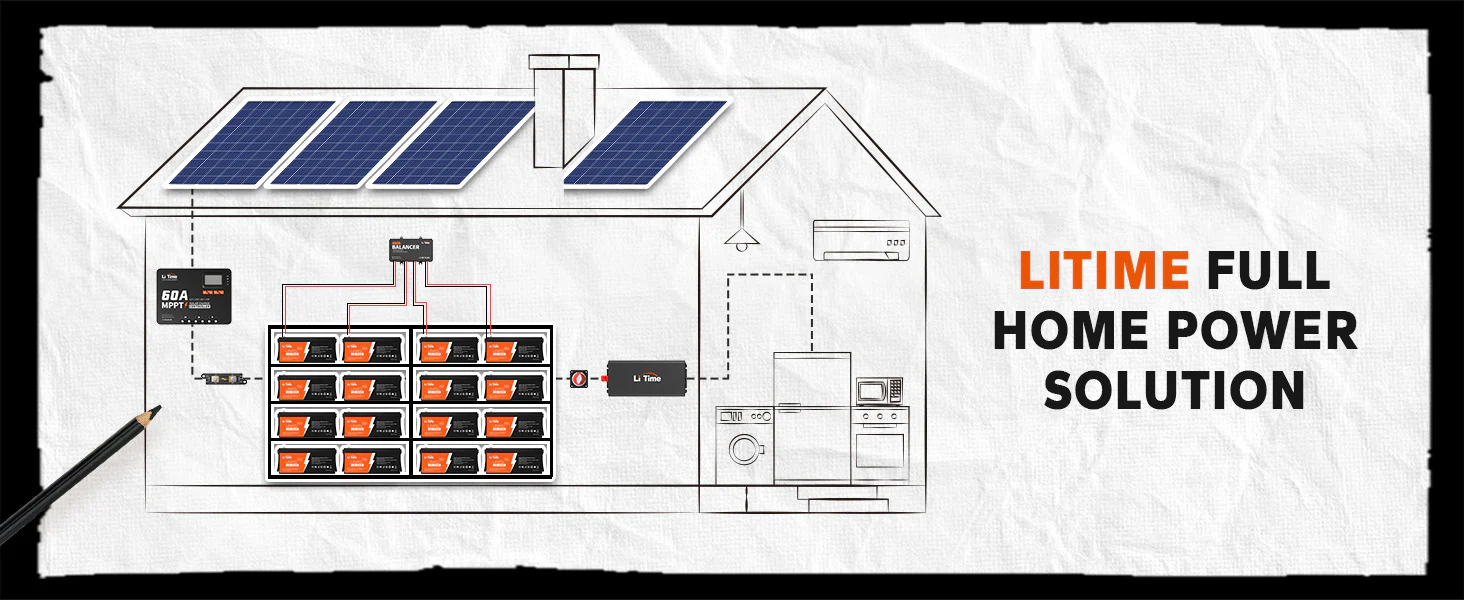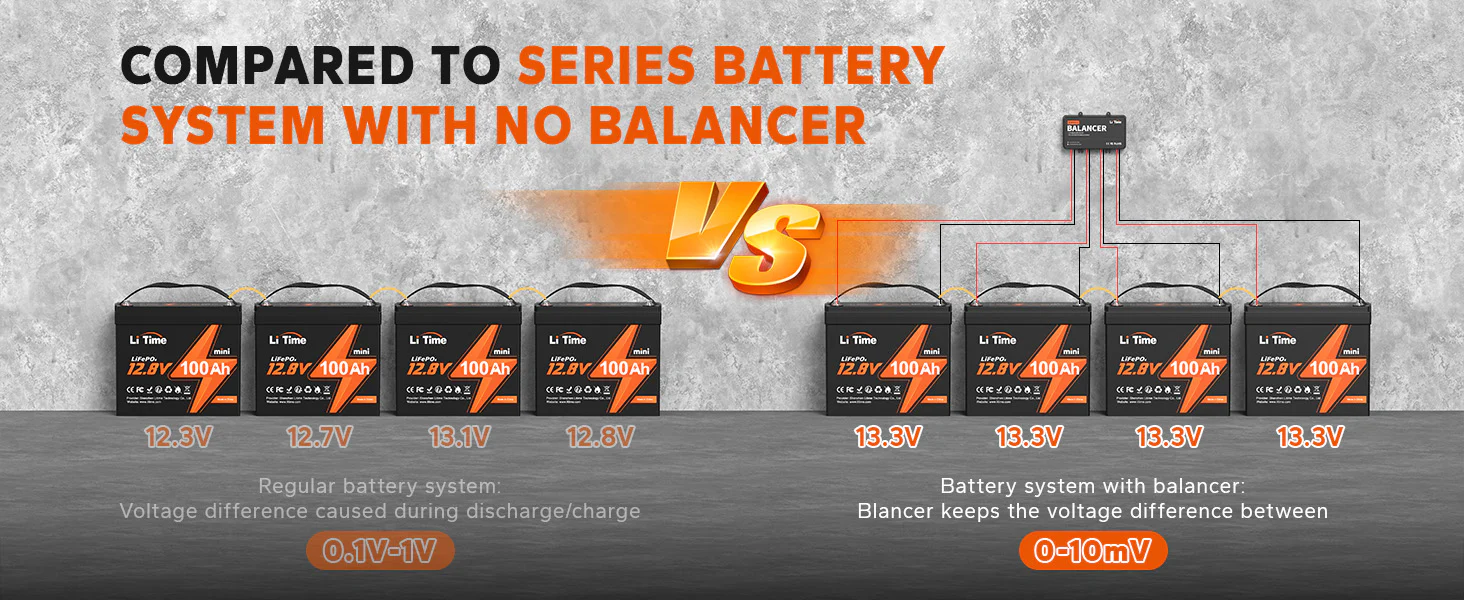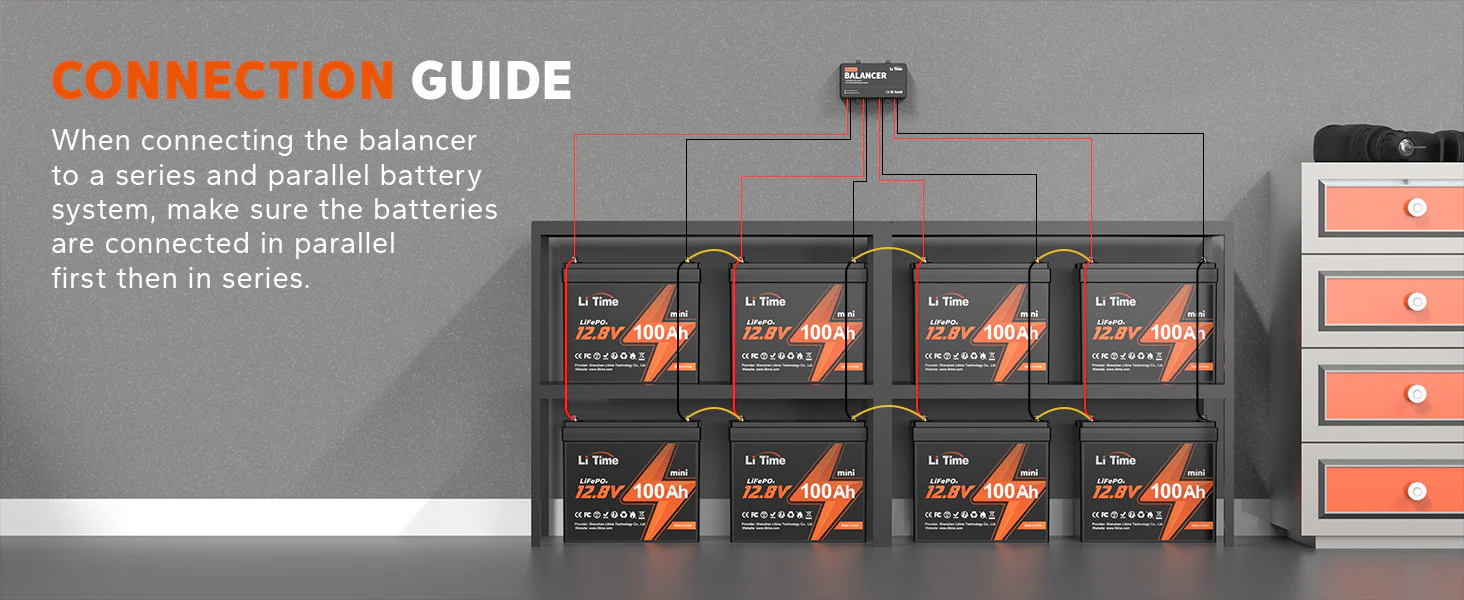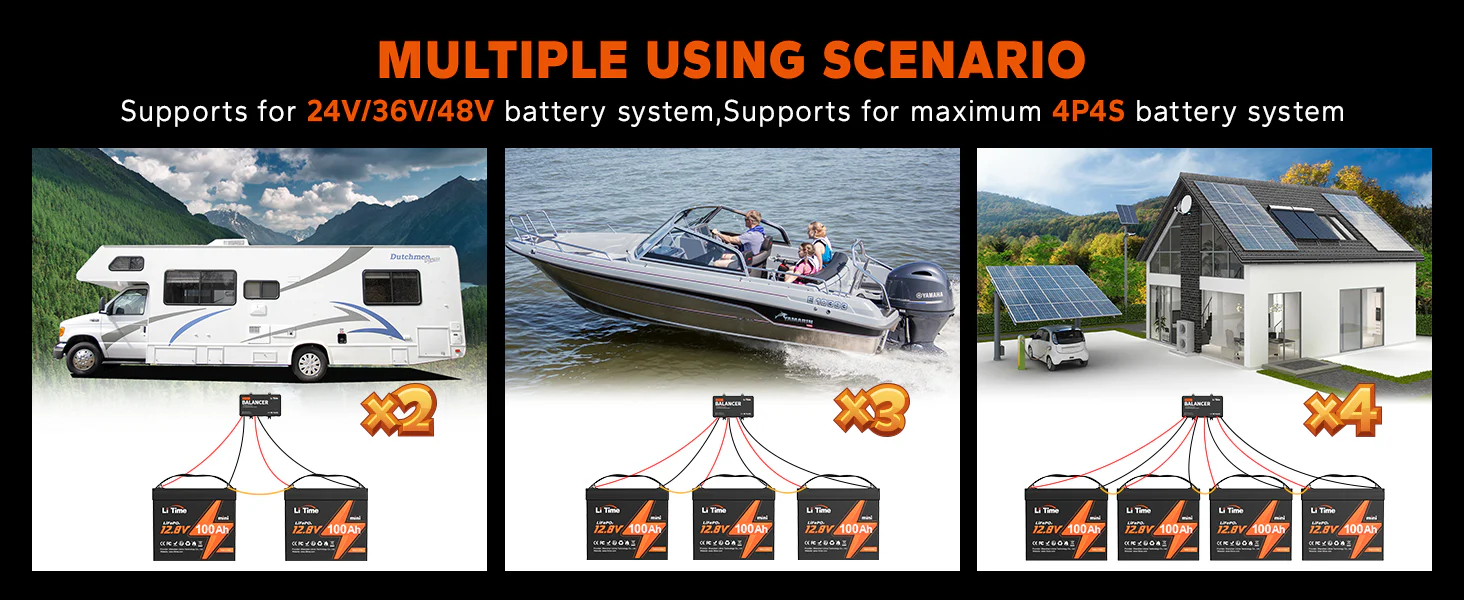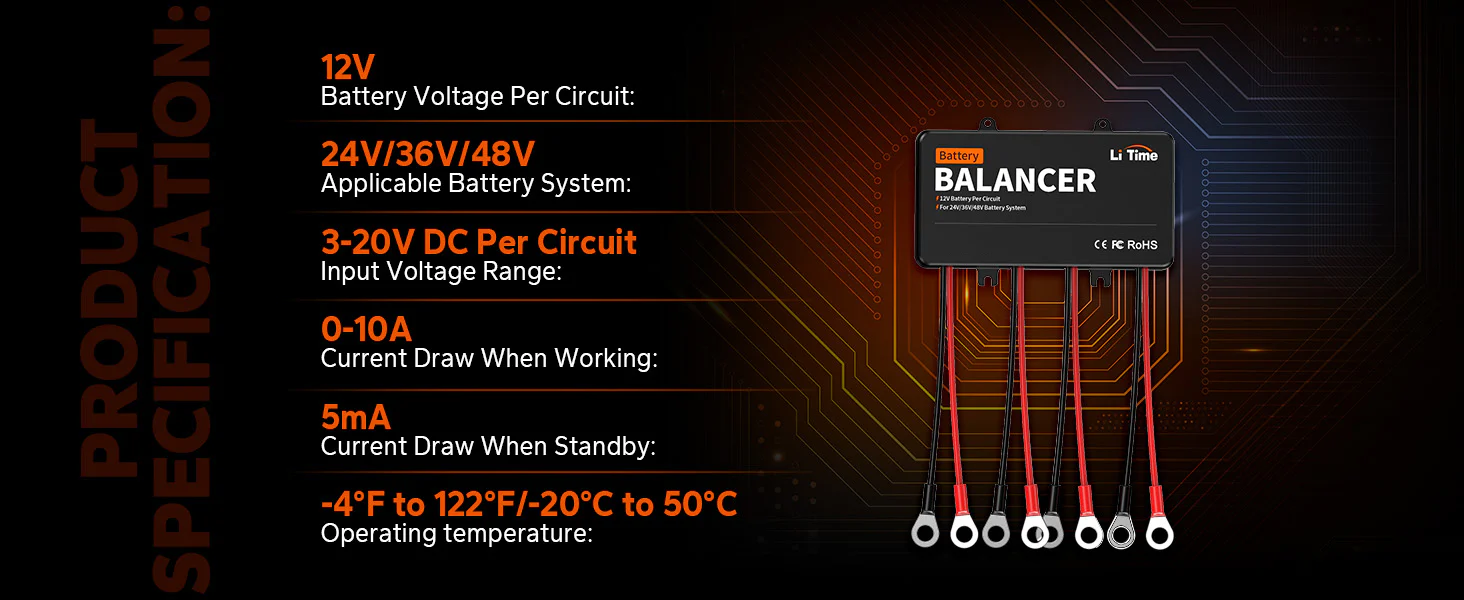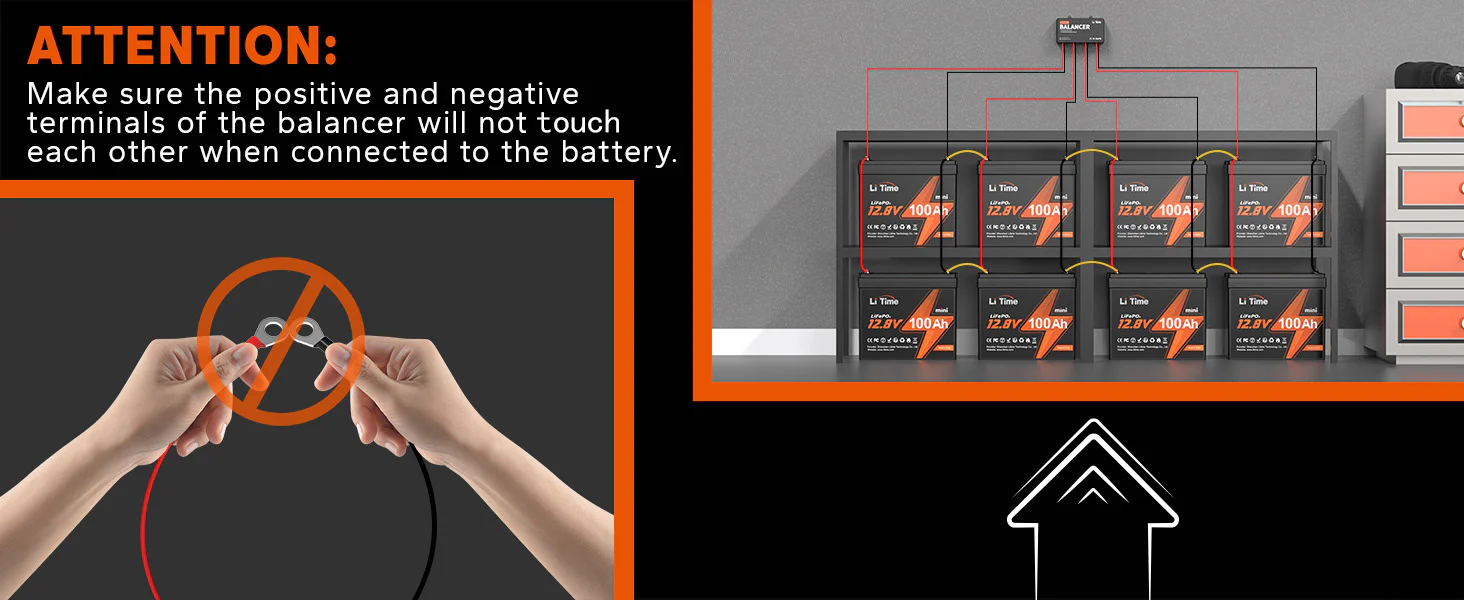LiTime 48V Battery Balancer for 24V/36V/48V Battery Bank
Estimated shipping on March 7th
❄Due to the blizzard, the batteries are waiting for the train to transport them to the warehouse. The batteries will need to be delayed until March 7th before they can be arranged for delivery.❄
- C$89.99
-
C$119.99 - C$89.99
- Unit price
- per
Couldn't load pickup availability
Free Shipping
Free standard shipping on all orders
Estimated to be delivered within 2-7 business days.
2 Years Warranty
Free Returns
Frequently Bought Together
-
FEATURES
-
SPECS
-
FAQ
-
REVIEWS
SPECS
FAQ
Q: What is battery cell balancing?
Cell balance refers to a condition where all individual cells have uniform capacity and voltage. When lithium-ion cells are connected in series and parallel, the manufacturer ensures that they share the same voltage and chemistry.
Q: Do I really need a battery balancer?
Balancing is necessary for packs that contain more than one cell in series. Parallel cells will naturally balance since they are directly connected to each other, but groups of parallel wired cells, wired in series (parallel-series wiring) must be balanced between cell groups.
Q: What is the difference between a BMS and a battery balancer?
A Battery Management System (BMS) and a battery balancer serve distinct functions in managing battery packs.
A BMS is responsible for monitoring and managing the overall health of the battery pack. It oversees factors such as individual cell voltage, temperature, and current, and ensures the battery operates within safe limits. Additionally, a BMS often includes features such as overcharge protection, over-discharge protection, and cell balancing.
On the other hand, a battery balancer is specifically focused on equalizing the charge among the individual cells within a battery pack. It works to ensure that each cell maintains a similar state of charge, which is crucial for the overall performance and longevity of the battery pack. While a BMS may include balancing functionality, a dedicated battery balancer is designed solely for this purpose.
REVIEWS
Related Products
- C$89.99
-
C$119.99 - C$89.99
- Unit price
- per
- C$89.99
-
C$119.99 - C$89.99
- Unit price
- per
- C$89.99
-
C$119.99 - C$89.99
- Unit price
- per
- C$89.99
-
C$119.99 - C$89.99
- Unit price
- per
- C$89.99
-
C$119.99 - C$89.99
- Unit price
- per
- C$89.99
-
C$119.99 - C$89.99
- Unit price
- per
- C$89.99
-
C$119.99 - C$89.99
- Unit price
- per
- C$89.99
-
C$119.99 - C$89.99
- Unit price
- per
- C$89.99
-
C$119.99 - C$89.99
- Unit price
- per
- C$89.99
-
C$119.99 - C$89.99
- Unit price
- per
- Choosing a selection results in a full page refresh.



















